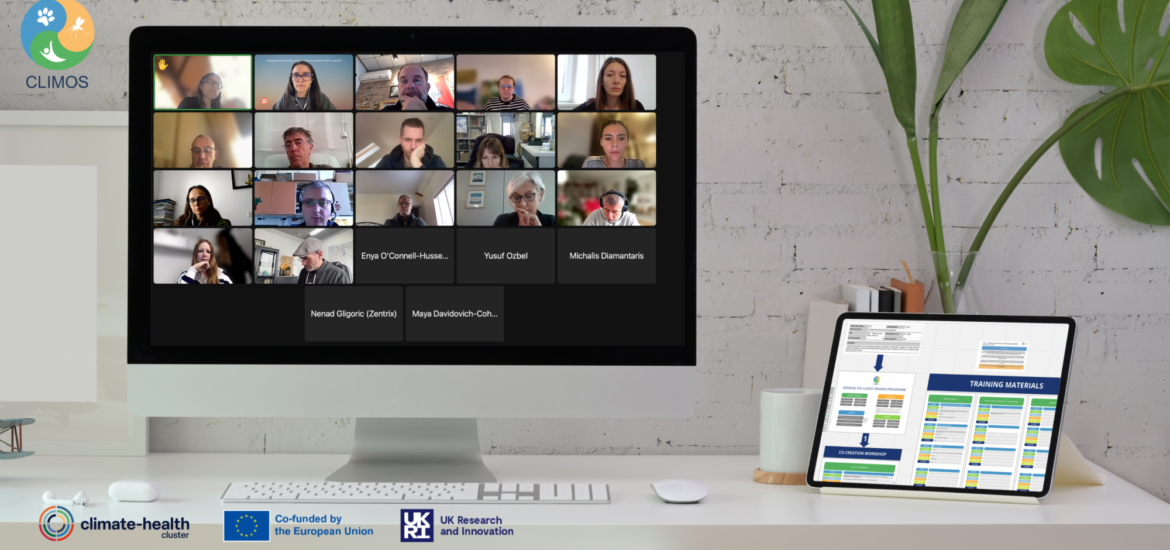Spreading awareness about leishmaniasis is vital, especially as sand fly geographical distribution expands due to climate change, there’s a concerning lack of public knowledge, particularly in the areas where new occurrences are emerging. This lack of awareness increases the risk of infections going unrecognized. Educating communities and policymakers on leishmaniasis symptoms and prevention is crucial for prompt diagnosis, timely treatment, and effective public health measures. The CLIMOS project gathered virtually on the 6th of December 2023 to join forces and set the stage for a collaborative effort to tackle the intersection of climate change and health, by tracing the roadmap of its workshops and training events.
During the meeting, the consortium focused on charting out an extensive plan for workshops, meetings, and training events integral to the CLIMOS project. These initiatives aim to engage various stakeholders, with a special emphasis on veterinary health professionals and policymakers at both regional and EU levels. Comprehensive training documentation and recommendations are being prepared for distribution, with accessibility in both print and online formats via the project website.
The meeting was marked by a high level of productivity, reflecting the commitment of the consortium to the project’s objectives. Deliberations included the development of workshops and events tailored to local communities and stakeholders. These initiatives will play a crucial role in co-creating surveillance and forecasting efforts, as well as in developing scenarios for health impacts related to climate change and SFBDs (Surveillance of Foodborne Diseases).
A key decision emerged from the meeting concerning the places for the in-person co-creation activities, that will take place near the trapping sites, scheduled for the upcoming year. This choice is pivotal in the success of field-based endeavour’s and marks a concrete step towards realizing the goals of the CLIMOS project. CLIMOS outlined a comprehensive work plan with a dual focus on workshops and meetings with local communities and tailored workshops for stakeholders. The first category aims to engage communities in the surveillance and forecasting efforts, while the latter will involve stakeholders in scenario development for health impacts and adaptation measures related to climate change and SFBDs.
To support the organization of these events, a suite of training materials, including manuals and guidelines, will be meticulously prepared. These resources will serve as essential tools for disseminating information and fostering active participation in the envisioned workshops and meetings.
CLIMOS aims to collaborate closely with health ministries and relevant public and veterinary health authorities. Meetings and training events are planned to explain and encourage the adoption of CLIMOS health and climate services, Early Warning Systems (EWS), and adaptation measures and tools.
As the CLIMOS consortium takes decisive steps forward, the project is poised to make a lasting impact in the realms of climate change, health, and community engagement. The commitment of the consortium members and the strategic decisions made during this inaugural meeting set a promising tone for the journey ahead. Stay tuned for further updates on the project’s progress.
